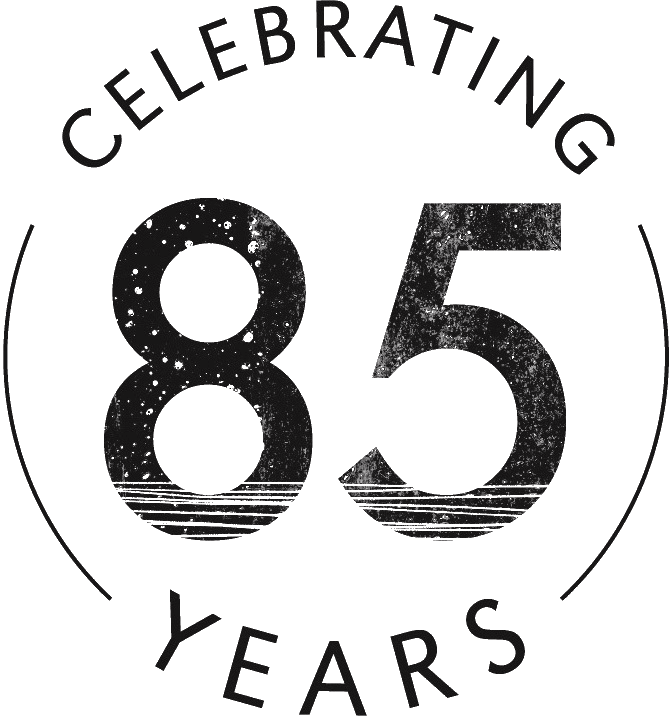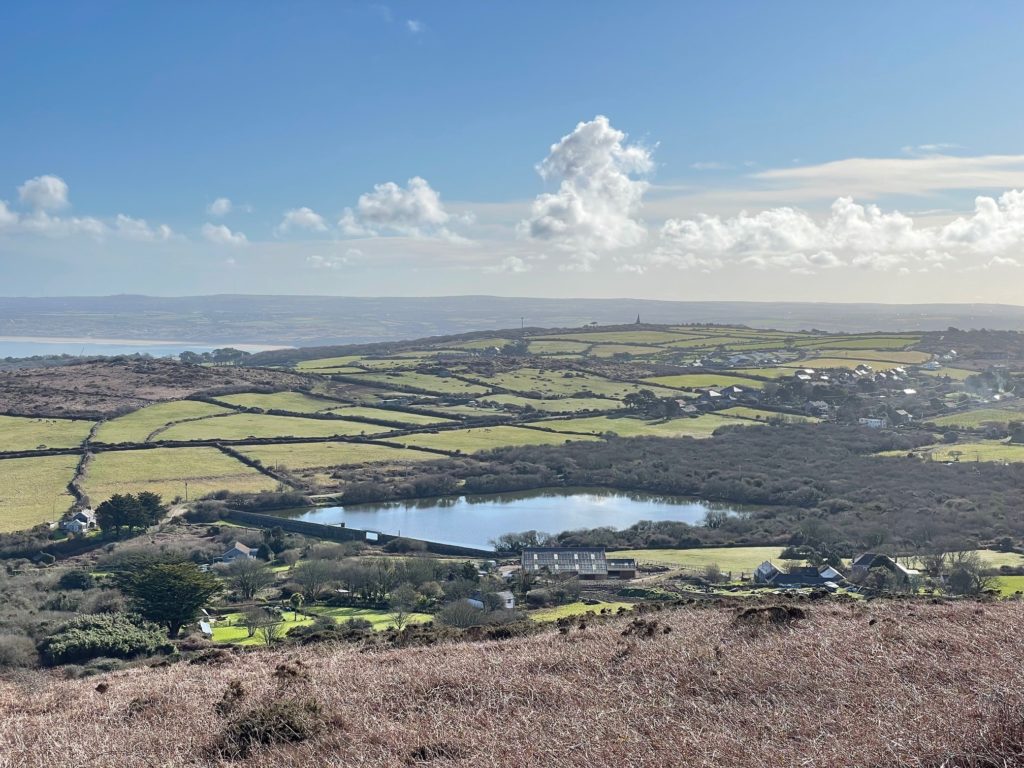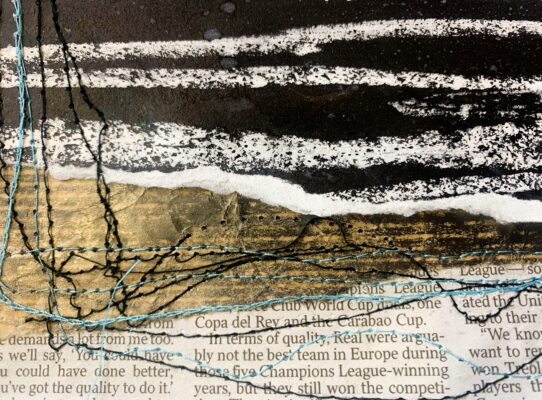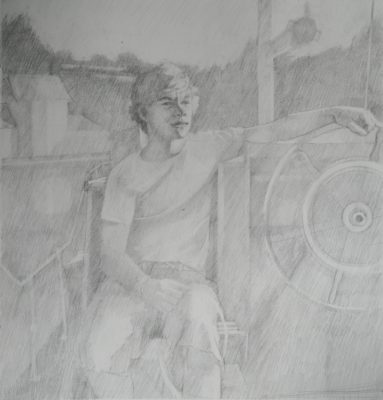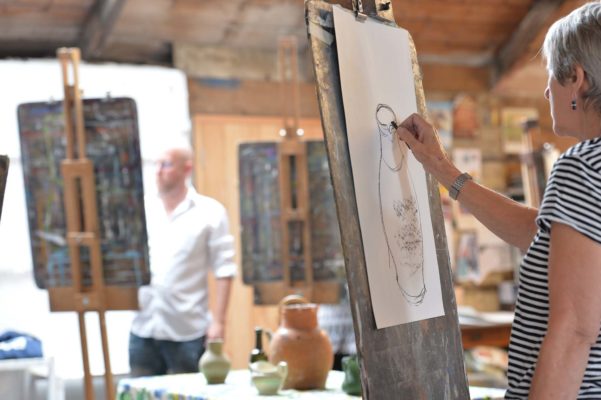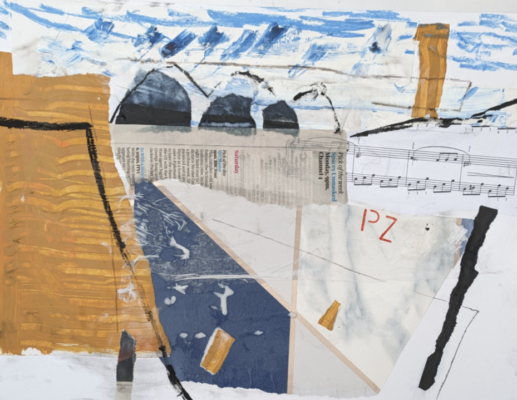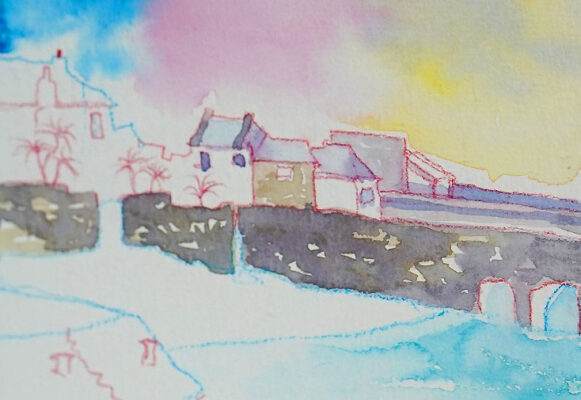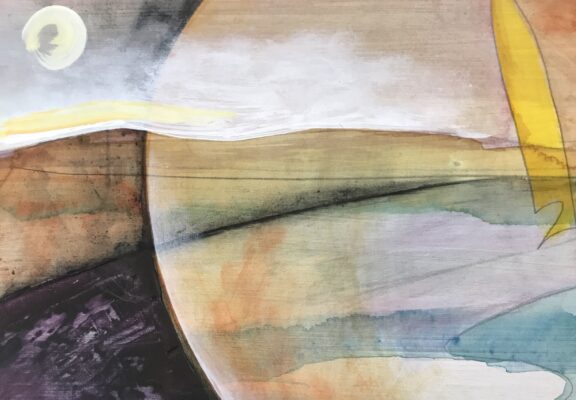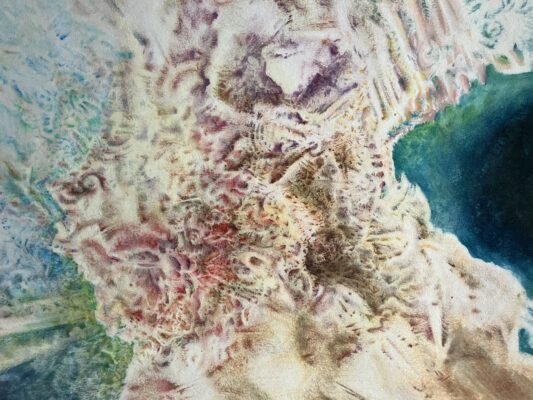Course details
Whether your artwork is based in abstraction, realism or conceptualism; this course, led by environmental artist Greg Humphries, aims to deepen your relationship with your environment, and the art you produce in it.
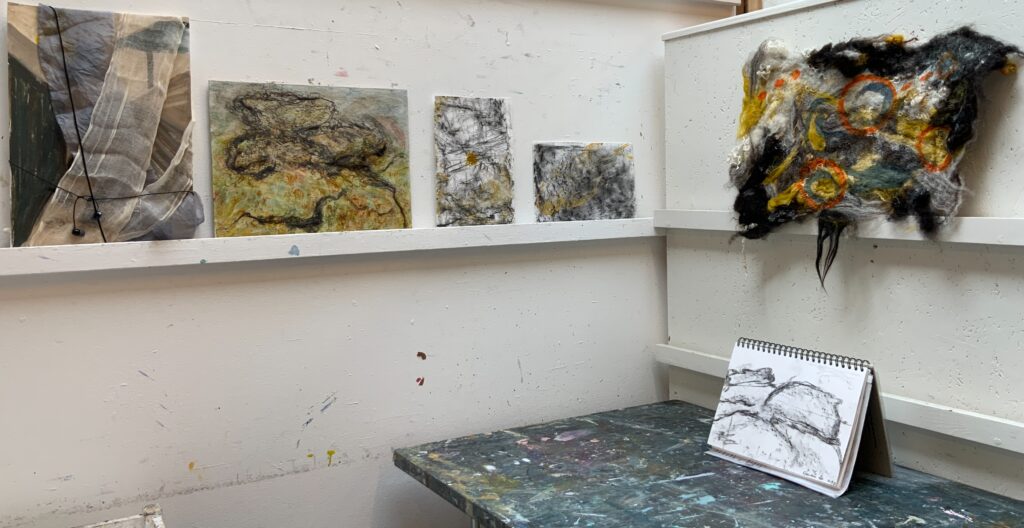
Student Work
This course is perfect for artists looking to explore process driven ideas and concepts in their landscape art, looking beyond the obvious to really get under the skin of a place!
n: Psychogeography – the study of geographical environment on the mind, or on behaviour.
Arising from theorist Guy Debord in the 1950’s, and its roots based in the Situationist movement, psychogeography arose to find alternatives and new ways forward through an interrogation of space and history. Examples we will work with in the course are “The Derive”, “The Detournement” and “The Palimpsest”, both in the landscape and your artwork. Great emphasis is placed on process rather than technique and outcomes can include figurative, abstract, surrealist or conceptual artwork.
Taking the example of the ‘Derive’; or walking without purpose. It better connects the walker to the environment because purposeful walking has an agenda (getting from A to B) and as such we do not absorb certain aspects of the world around us. The ‘Derive’ allows us to take our time, amble about, absorb and examine elements of the landscape we find ourselves in and record their effect on us through the artwork we produce. We will explore special locations in and around St Ives, with a field trip out towards Zennor, where you will have the chance to deepen your relationship to this unique landscape and to capture a ‘sense of place’.
Using a combination of research, imagination, critical thinking, photography, sketching and painting, environmental artist Greg Humphries leads you on a journey of exploration into this rich and relatively unknown artistic genre. Ideal for those that want to find ways to advance their landscape painting, or simply look at landscape in a different way. The techniques explored can be applied to creating art in both urban and rural environments.
There will be just 8 students on this course so plenty of 1-1 attention.
We highly recommend you watch Greg’s webinar ‘The Landscape Psychogeographer‘ where many of these ideas are discussed and, if you are looking for personal accounts of Greg’s psycho geographic adventures then you can read his book.
Day to day plan
This is a rough indication of what to expect over the course. However sometimes the structure of the days may alter depending on the nature of the group and weather.
Day 1
After introductions in the studio we will venture out to the architectural landscape of St Ives. During our own ‘derive’ we will collect visual information (figurative, abstract and automatic) of the area then re-group to discuss the ideas of ‘palimpsest’ and ‘detournement’. The afternoon will be studio based, re-working images and creating more considered work.
Day 2
In the morning we will travel to the enigmatic and dramatic landscape of Rosewall Hill. Re-visiting the ideas and techniques of day one but in a very different wild, rural landscape overlooking the Atlantic.
Again, the afternoon will be spent in the studio working with the information gathered in the morning.
Day 3
After a ‘derive’ along the beach we return to the studio to discuss how the ideas and techniques could be integrated into participants own landscape art. The rest of the day will be spent exploring this individually with plenty of 1-2-1 input from Greg.
What will I learn?
- Learn new techniques and experimental ways of working.
- Gain a deeper understanding of the landscape in and around St Ives.
- Learn about psychogeography and the ‘derive’.
- See how to capture a ‘spirit of place’.
- Learn new ways of engaging with landscape which are not purely pictorial.
Who would this course suit?
This course is suitable for anyone. If you are interested in finding new ways of capturing the environment around you, this course is for you. Most importantly, this will be a chance to explore and experiment without judgement.
Taught by
What to Bring
Our studios are fully equipped and we provide you with all the materials you need for your course. However, if you have a favourite set of brushes or any specialist materials that you would prefer to use, please bring them with you.
Timings and Breaks
The first day starts at 10am and finishes at 4.30pm, please aim to arrive ten to fifteen minutes before the start time.
All course days after that start at 9.30am and finish at 4pm and there will be an hour for lunch. There are plenty of nearby places to eat and we will serve tea and coffee at break times during the day.
FAQs
Studio Courses
How can I get help in choosing a course?
Our friendly expert staff are always happy to discuss your needs and our courses in more detail to help you with your decision. Please call us on 01736 797180
How do I get my work home?
Tutors have special techniques for transporting oil paintings and the school has plastic folders available in our shop for £3.50 or do bring a portfolio.
For international students we are happy to arrange transportation of your work back home.
What do I need to bring?
Absolutely nothing! All materials and aprons are provided although some people do like to bring their own set of brushes.
What do I do for lunch?
Courses allow an hour’s break for lunch and there are numerous places nearby or you are welcome to bring a packed lunch into the studio.
What times do courses run?
Most of our courses start at 10am and end at 4.30pm on the first day. Subsequent days we start at 9.30am ending at 4pm.
Weekend Courses run 10am – 4pm on the first day but the final day starts at 9.30 and ends at 3.30 with a short lunch break to enable people to get home that evening.
Do you have to be experienced to come to the School?
The School is a very friendly and welcoming place for all ages and experience. Our drop-in life classes and August half-day workshops are ideal for those wanting to have a go for the first time. Most of our longer courses are also fine for novices.
If any of the courses do need a bit of experience we flag this up in the brochure and on the website.
Booking a Course
How can I reserve a place?
We will hold a provisional reservation for 24 hours if you give us a call whilst you find accommodation. Otherwise please book online or by telephone 01736 797180.
You can reserve a place with a £100 deposit; balance is due 12 weeks before course start date.
About St Ives
Where do I park?
The nearest long stay public car parks are the Island and Barnoon Long Stay Car Park, both a 5 minute walk away. In the peak summer months it may be easier to park at Trenwith Car Park by the leisure centre and walk down into town. If you don’t fancy the walk up the hill at the end of the day there is a shuttle bus which runs from outside the cinema.
How do I get there?
Public Transport: If you are coming from further afield the main train line runs into St Erth which is a 15 min taxi ride away or you can take the St Ives Bay Line which runs approx. every 30 minutes. The School is a 10 minute walk from St Ives station.
Driving: M5 will take you to Exeter where we recommend that you take the A30 across Bodmin Moor and into Cornwall. After passing Hayle, leave the A30 at St Erth roundabout for St Ives. Turn right at the second roundabout. This road will take you through Lelant and Carbis Bay into St Ives.
Where can I stay?
St Ives has a huge selection of hotels, guest houses and self catering accommodation to choose from. Please browse the art holidays St Ives section on our website and give us a call if you would like any help.
